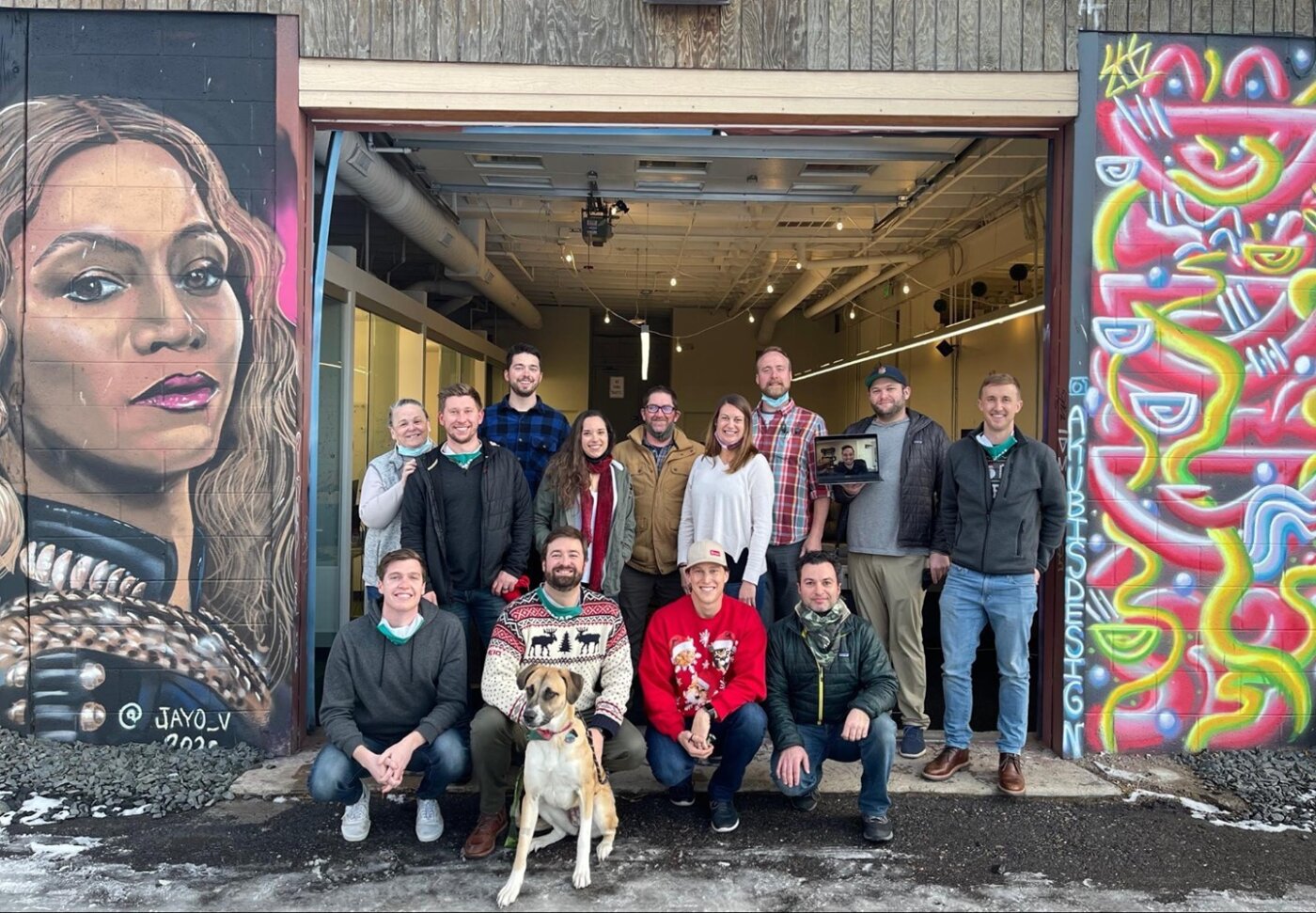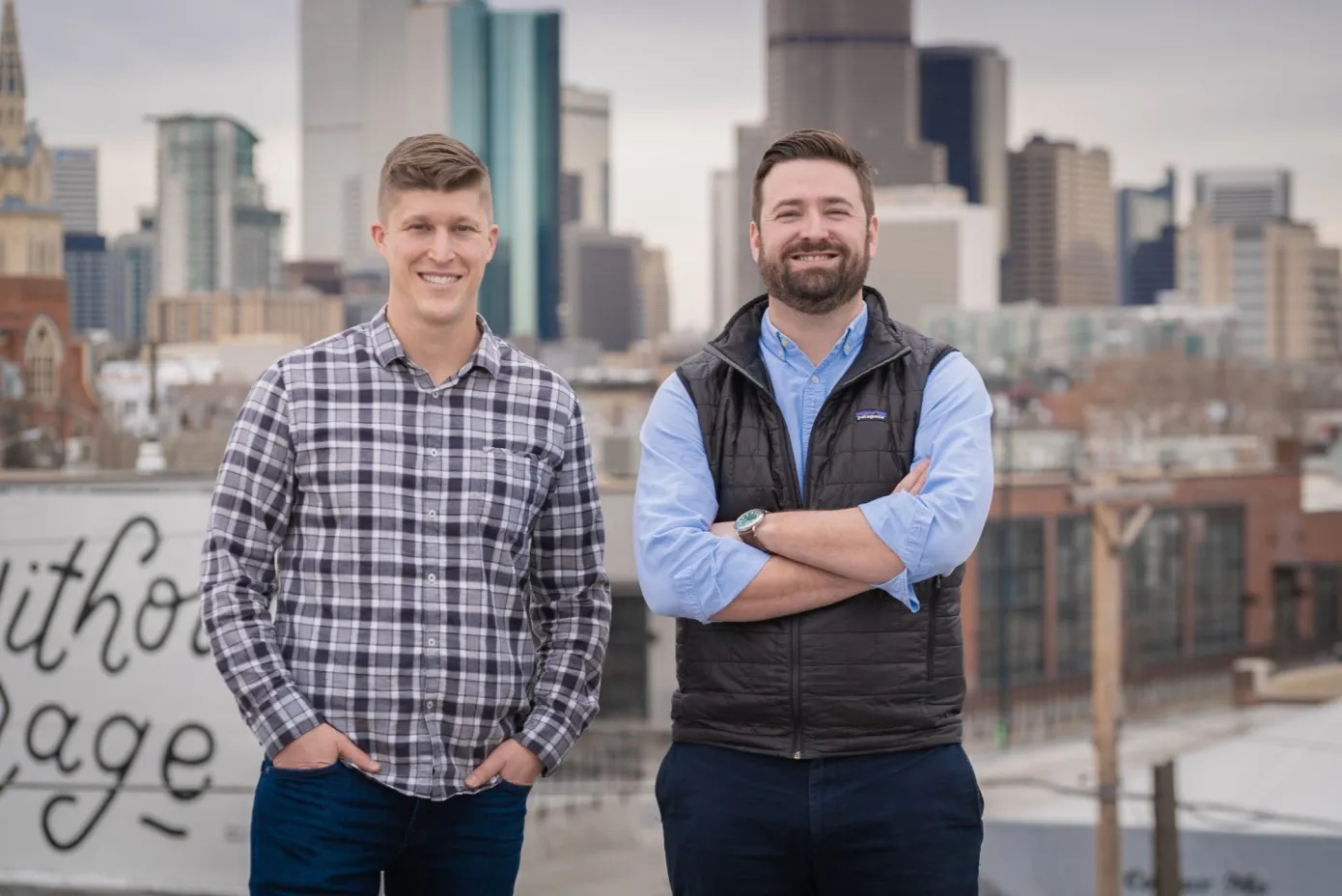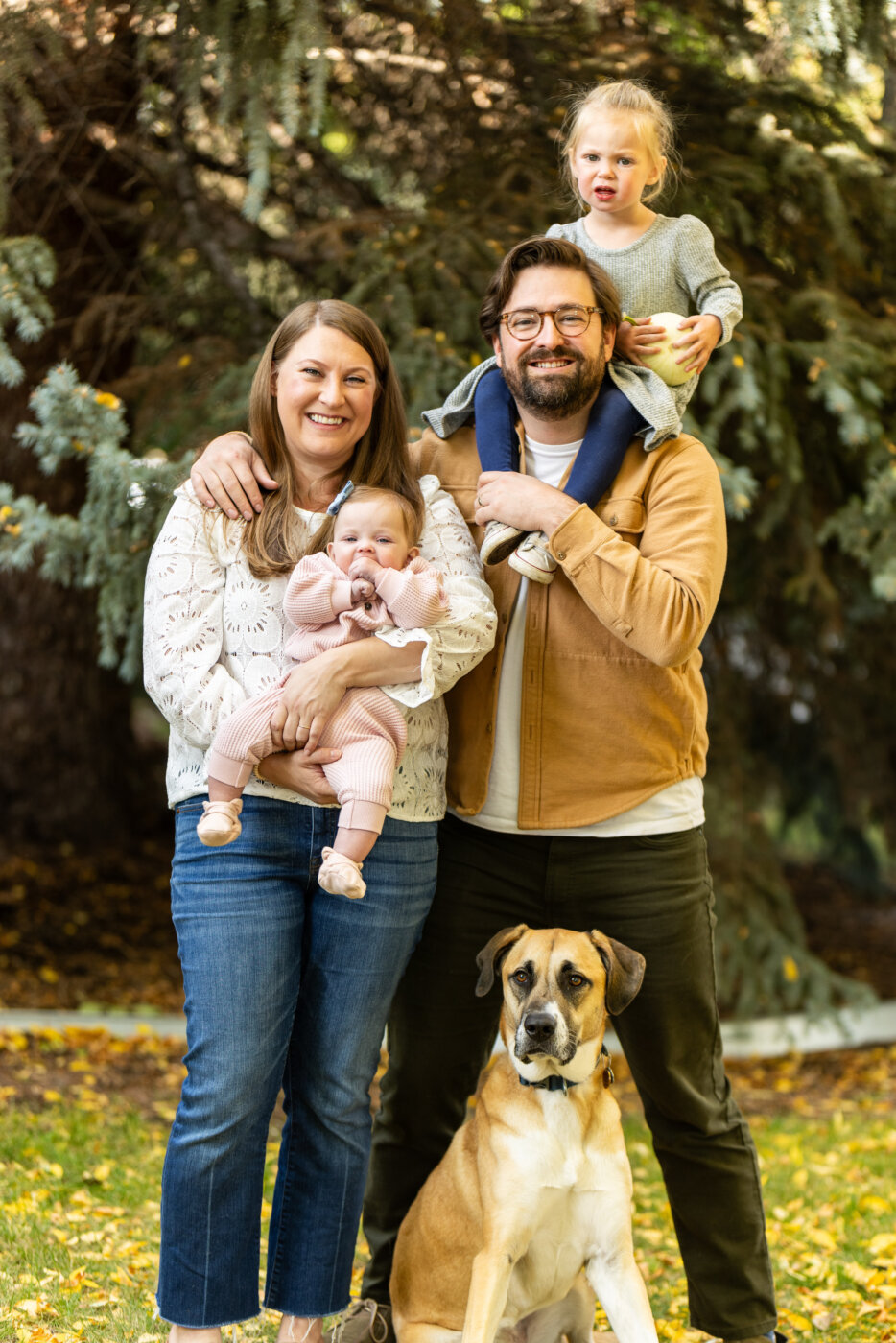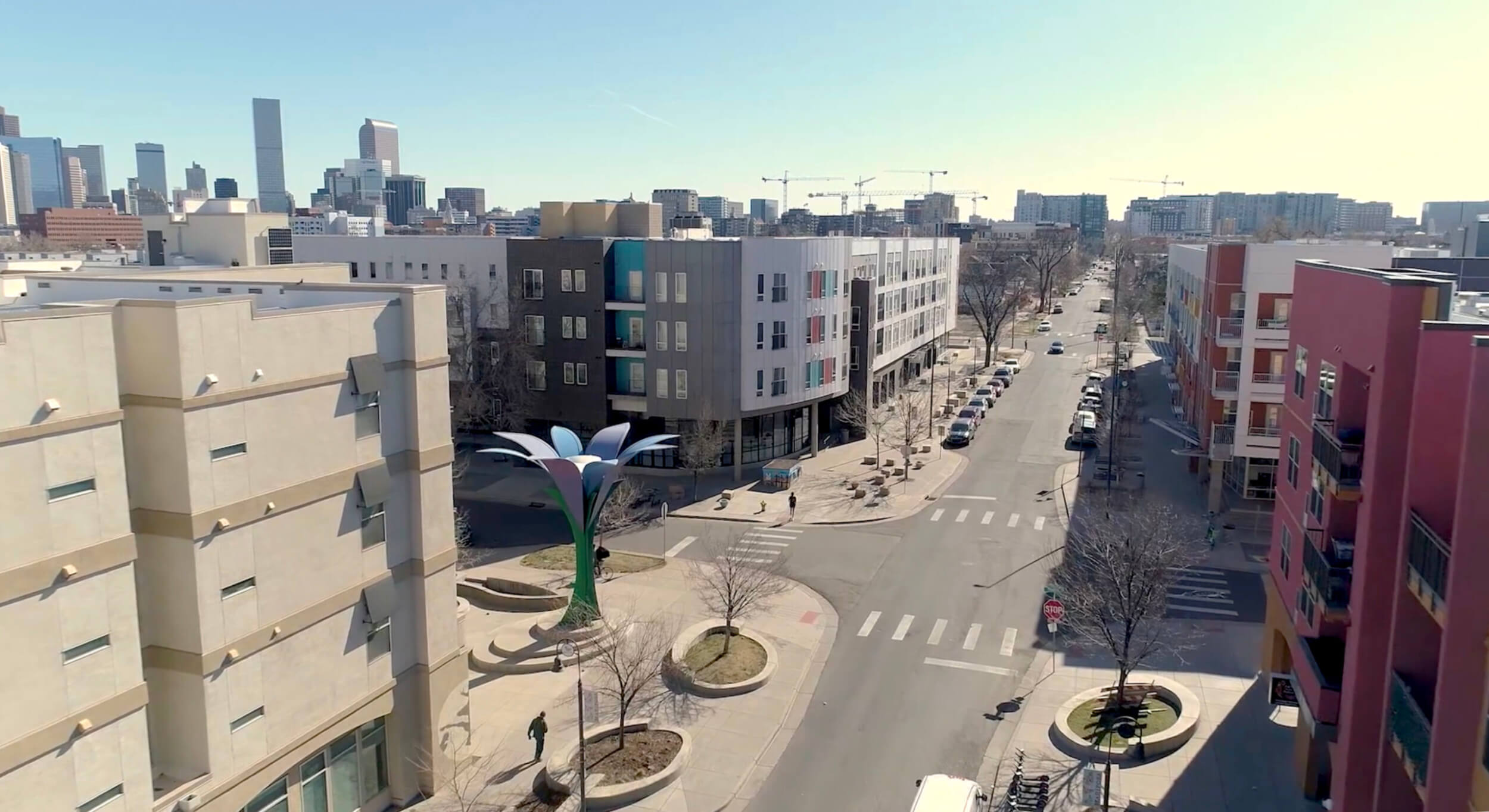Just a couple of decades ago, San Francisco, New York, and Boston were the cities synonymous with the kind of tech entrepreneurship that made companies such as Facebook, Google, Amazon, and Tesla into unprecedented, global forces for economic growth and political and social influence. But over the last five to 10 years, according to PJ O’Neil ’07, the tech world’s “center of gravity” has begun to shift closer to Denver, where his property-leasing startup, Nomad, in 2022 raised $20 million to expand the reach of its vision to “unlock economic opportunity in the long-term rental community.”
“Back when I was a student at Colorado Academy,” recounts O’Neil, “it felt like everyone’s parents were in the oil or gas industry, or were doctors or lawyers. My dad was an entrepreneur, so I felt like a salmon swimming upstream. But I loved the world of technology and venture investing, and after I spent a few years in New York and San Francisco working with startups, I came back to Denver and realized everything had changed.”
That includes CA, which launches its REDI Lab Innovation Insight Series May 14, turning the new Coleman Center in the Mariposa Arts District into a base from which to stimulate curiosity and interest in entrepreneurship and tech innovation; create opportunities for shadowing, internships, and mentorship to support aspiring entrepreneurs; and foster connections within the community that can lead to continued growth.
The COVID-19 pandemic, unsurprisingly, was a big part of this shift. In the suddenly more democratized world of fully remote business, investors who had previously focused on their own neighborhoods on the East or West Coast could now seek out innovation and value almost anywhere. They quickly discovered the Mile-High City’s emerging tech ecosystem (which now includes major offices of the Silicon Valley-based Zoom Video Communications, perhaps COVID’s biggest tech success story).
Local startups including Ibotta, Nomad, SonderMind, Twilio, and Guild Education—plus better access to investors through new funds such as Denver-based Range Ventures—were finding community support and space to grow alongside established brands such as Google and Slack, both of which opened Denver-area campuses. “It was very clear that something was happening here,” explains O’Neil.
“With Nomad,” he continues, “we went from barely being able to get meetings with venture firms to getting dozens of Zoom calls scheduled all over the country. And we ended up raising capital from people who weren’t local as much as from people who were; they were just as excited about Nomad as they would have been if we were based in the Bay Area.”

That Denver had finally “arrived” on the list of modern entrepreneurial power cities was signaled with an unmistakable ringing sound in April 2024, when Ibotta, the mobile app founded by CA parent Bryan Leach which marketers can use to incentivize consumers through cash-back deals and rebates, raised over $500 million in its initial public offering on the New York Stock Exchange. Overnight, Ibotta turned into a $3 billion company, minting hundreds of Denver millionaires in the process.
Nomad, the very first company on Range Ventures’ roster, received critical funding from Leach and others of Denver’s earliest tech founders, a mutually beneficial cycle that looks set to continue, as Ibotta and other successes prove the city’s viability for tech entrepreneurs. “It’s feeling more and more like a really, really supportive place to build a company,” O’Neil says.
Telling the Story
O’Neil co-founded Nomad with partner Matt Thelen, a Denver native who attended CU Boulder and worked for another of the city’s recent successes, SendGrid, before it went public and was sold to cloud communication leader Twilio. Their company provides mom-and-pop rental property owners financial certainty and helps them navigate the complexities of being a landlord in the turbulent rental market, providing the level of management normally reserved for massive companies with hundreds or thousands of homes. For tenants used to simplified, tech-enabled experiences, they get to experience the same from an individual landlord. Nomad also unlocks economic opportunity for residents and tenants in its network by helping them build their credit, offering flexible leases, and helping them bridge into homeownership by covering closing costs when they buy their first home.

“Individual landlords make up the majority of the single-family rental market, and Nomad exists to solve their single largest pain point: uncertainty,” states O’Neil. “Guaranteed rent allows landlords to operate on sure footing—and with access to the benefits of scale that usually only belong to massive single-family rental corporations funded by large Wall Street institutions.”
Pledging to continue Nomad’s shakeup of single-family rentals with its recent nationwide expansion, CEO and co-founder O’Neil says the road to reach this point began at CA—but not in exactly the way you might expect.
“CA instilled in me a creativity and sense of whimsy that are essential in getting any company off the ground. That spirit needs to be fostered from a very early age, and CA was where that happened for me.”
O’Neil spent plenty of his Middle School and Upper School years in the theater program, where, he says, he also gained the confidence to be vulnerable—another key ability in the entrepreneur’s toolkit.
“As a founder, the more vulnerable you are, sometimes the more productive you are, because you can now open up to your investors and give them the full scoop on how the business is performing, which means they can be more helpful. You connect with your employees differently. You can seek mentors out and get help that’s truly valuable.”
Writing at CA, too, provided another foundational skill: Storytelling, it turns out, is a large part of the entrepreneur’s job. “Not only writing stylistically, but how you craft the narrative—raising money for an early-stage business is 90% story,” acknowledges O’Neil. “How do you explain the opportunity and why this idea deserves a place in the world? Being able to tell that story is critical in convincing investors and early employees to take a leap of faith with you.”
‘One Degree of Separation’
It was probably all of those takeaways that buoyed O’Neil as he worked to find his way after CU Boulder, where he majored in economics and math, and then in New York, where he was in management consulting for several years before discovering a taste for high tech and e-commerce. From there he went to Berkeley for his MBA and later for his first attempts at being a founder (with a home-ownership startup called Homeslice) and working in venture capital.
But it was as a general manager with Opendoor, the tech-enabled real estate platform for buyers and sellers, that he finally made his way back to Denver and found the role that now feels right. Working for that San Francisco-based “unicorn”—a term coined to describe privately-held startup businesses valued over $1 billion—O’Neil quickly learned what it looks like to scale a company to attract hundreds of millions in capital from investors all across the country. His job was to launch new markets, including Denver, and when he had successfully established Opendoor here, he looked around and noticed the city’s growing tech community, which would eventually inspire him to start Nomad.

“The opportunity was here, and so I decided to stay,” O’Neil recounts. “There was this whole crop of new startups, and people were moving to town from New York and the Bay Area and getting settled here. It’s an incredibly desirable place to live; it’s not a hard sell when you’re living in San Francisco and can barely afford rent. Now, this is where companies are being formed—this is where the venture money is.”
According to recent reports, some $17 billion in venture capital funding has poured into the Denver Metro Area in the past five years, and technology has become one of the region’s biggest economic drivers.
For O’Neil, the best part of the story is that for all the buzz, Denver’s tech investing community has remained a relatively small world. “There’s literally one degree of separation between founders and investors here; you’re one introduction away from having coffee with someone. You can bike or walk to most people’s offices and homes. For anyone looking to get into this field or find mentorship, there are so many people willing to help you along.”
The challenge of breathing life into a new idea is what keeps O’Neil hooked on entrepreneurship; it’s the pride and joy of doing it in Denver that makes it feel like so much more. Participating in CA’s new REDI Lab Innovation Insights Series, whose inaugural event features Ibotta’s Leach, will no doubt ensure he’s right at the center of the next big thing to emerge in Denver—perhaps even under the leadership of another CA grad.
“Building something in Denver makes me feel like I’m giving back to my city in some way. All my life the Wells Fargo Center ‘cash register’ has been an icon, and now I’m working inside the building. I feel so lucky I get to take a crack at business here. I know that even if I stumble or Nomad doesn’t take off the way I’d like, there’s a whole safety net that’s here to pick me up.”
